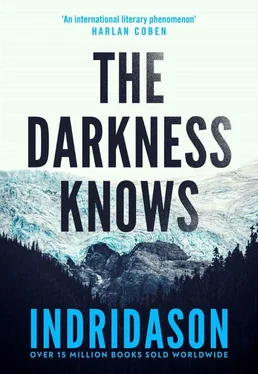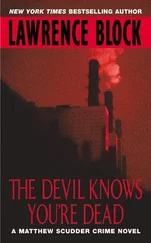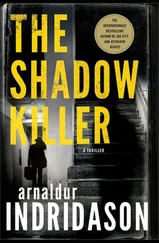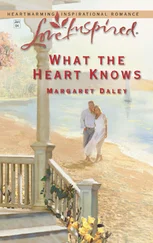Konrád was still brooding on the visit when he got into bed not long after midnight. It started to pour with rain outside as if the heavens had opened. He had no idea who had been responsible for telling Hjaltalín about his father’s murder, back when he was detained in Sídumúli Prison thirty years ago. Hjaltalín had started asking Konrád about it, hesitantly at first, but the longer he was in custody, the more he pestered him, until in the end they could hardly meet without him bringing up the subject of Konrád’s father. He had found his jailer’s Achilles heel.
‘Why do you think he was killed?’ Hjaltalín used to ask. ‘Haven’t you ever tried to discover the reason, since you joined the police? What was your relationship like? Was he a good father? Did he treat you better than he did your mum?’
Konrád had tried to ignore his questions, but eventually he had given in and provided Hjaltalín with a brief account of his father’s murder, in the hope that it might help to loosen the prisoner’s tongue. Konrád had been eighteen at the time of his father’s death. He told Hjaltalín that his old man had been stabbed twice with a knife, and that neither the killer nor the weapon had ever been found. The murder had been all over the papers at the time and Konrád had read the coverage obsessively. But when Hjaltalín kept pushing for more information, like how Konrád had felt or why his parents had been separated at the time of the murder, Konrád had clammed up. By then, Hjaltalín’s time in custody was drawing to an end.
‘And then you go and become a cop yourself,’ Hjaltalín had said to him when he was released. ‘The son of that man. Isn’t there something warped about that? Does it add up?’
Konrád turned over restlessly, trying to banish these thoughts. But when he finally dropped off, sleep didn’t bring him any relief. Instead, he dreamt of Hjaltalín’s ashen face and pale blue eyes and woke with a gasp in the middle of the night, sweating and filled with that sick feeling of unease.
Shortly after their meeting at Litla-Hraun, the Supreme Court ruled that the police had no grounds to detain Hjaltalín in custody.
Two weeks later, Konrád learnt that he had died in the oncology ward at the National Hospital.
Hjaltalín had gone to his death, insisting to the last that he hadn’t killed Sigurvin.
A series of deep autumn depressions had lined up over the Atlantic and were now advancing relentlessly across the country, bringing rain, gales and plunging temperatures. Konrád had discovered when he retired that the days seemed to stretch out twice as long, not least when summer gave way to autumn. Life acquired a strangely timeless quality. Minutes expanded into hours as time meandered along at its own sweet pace, freed from the fetters of habit. No longer measured off in shifts, lunch breaks, overtime, supper time, meetings, coffee breaks, working days, holidays, weekends. All these were wiped out, to be replaced by one never-ending Saturday. It was as if his life had been transformed into a perpetual holiday.
Now and then he would go for a meal at his son’s house and sit with him for part of the evening. He read newspapers and books, surfed the net, went to museums and galleries, watched films and plays, and hung around in second-hand bookshops, doing all the things he’d persuaded himself he didn’t have time for while he still had a role to play in society. He often felt like a tourist in his own city, and sometimes found he had blundered into one of their groups — in a museum, perhaps, or on his way down Skólavördustígur. All of a sudden it would dawn on him that everyone around him was speaking Swedish. He had twice been addressed in French as he was queuing at a restaurant. That’s what he got for wandering about town during the day, when all normal people were at work.
Time was mainly measured in seasons now. Konrád was happiest in spring, when the days began to lengthen, the sun rose higher in the sky, trees and grass awoke from their long hibernation, migratory birds began to return to Iceland’s shores, and human life shook off its winter torpor. He and Erna had always loved to travel around the country in the summer holidays and had a number of favourite places. One of these was the campsite at Thakgil, which nestled at the mouth of a dramatic gorge in the foothills of the Mýrdalsjökull ice cap in south Iceland, not far from the notorious volcano Katla. They used to try to go there every summer. He had never liked autumn, when the sun sank ever lower in the sky and gales whirled the dead leaves through the streets. As for winter, it was a time of stasis, when everything went into suspension, waiting for the return of the sun.
Yet another autumn depression was passing over, battering them with high winds and heavy rain, when Konrád took a seat in Marta’s office at the police station on Hverfisgata, to ask her about Hjaltalín’s last hours of life. He had, after some reflection, rung her to see if they could have a quick meeting. She had agreed immediately. Konrád hadn’t come into the station much since retiring and there were a number of new faces he didn’t recognise. The old ones greeted him warmly, though, shaking him by the hand and asking how he was doing, telling him that society was going to the dogs, but then that was nothing new.
Marta was the wrong side of forty, plump, with a large head and dark eyes and hair. She’d never been interested in clothes, going in for an unvarying uniform of shapeless trousers and shirts, and her hair was usually a mess. It was almost unheard of for her to put on lipstick or perfume. She had lived for years with a woman from the Westman Islands, but ever since that relationship hit the rocks she had been alone. To her colleagues in the police, she was invariably known as Smart Marta.
‘They were buried a week apart,’ Marta commented, handing him a coffee in a plastic cup. ‘Hjaltalín and Sigurvin. Ironic, don’t you think? One died recently; the other thirty years ago.’
‘You didn’t tell me Hjaltalín was ill,’ Konrád reproached her.
‘No, maybe I should have. Did it bother you?’
‘He didn’t look good.’
‘We weren’t to know he had so little time left.’
‘Did you find anything useful on the glacier?’
‘No. Not a thing. I reckon they’re going to close the inquiry for good.’
‘Hjaltalín never confessed?’
‘Nope.’
‘Then why do you want to close the inquiry?’
‘Not my decision. I expect they think we’ve done enough — the guys upstairs, I mean.’
‘He asked me to find the murderer.’
‘He never gave up, did he? What did you say?’
‘I said I’d retired.’
Svanhildur had told him confidentially that Sigurvin’s death was the result of head trauma, as her preliminary findings had suggested. His nails were clean and neatly cut and he had recently visited a barber. His internal organs were thawed before they could be examined but, even so, Svanhildur’s fingers had got so cold during the post-mortem that she’d had to keep a bowl of tepid water beside her to warm them. The stomach contents indicated that Sigurvin had eaten shortly before his death; a burger and chips, probably at a fast-food place. Nothing was found in his pockets except his house keys and wallet. The assumption was that, after leaving work and having the altercation in the car park, he had gone home, changed out of his suit into more comfortable clothes, then got back in his car and gone to buy a meal, before driving up to the hot-water tanks on Öskjuhlíd. When the appeal for information had been at its height after his disappearance, the police had paid particular attention to checking if he’d been seen at a variety of possible locations, including burger bars and petrol station shops, but no sighting had ever been confirmed.
Читать дальше












